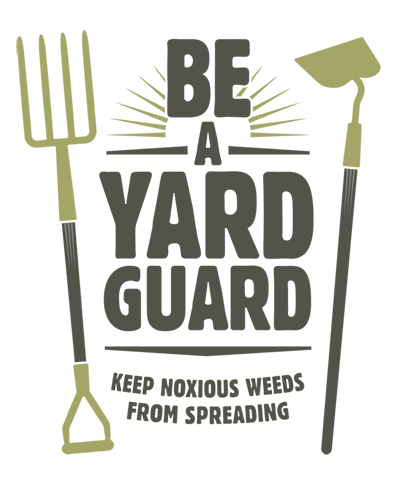Become a Yard Guard

Noxious weeds have far-reaching impacts: Some noxious weeds are toxic to people or animals. Some damage infrastructure or reduce property value. Some increase wildfire risk or contribute to hotter or larger wildfires. Others limit outdoor activities and water access. Noxious weeds can degrade important wildlife habitat and natural areas and outcompete native plants. Now, more than ever, we must come together to reduce the damages caused by noxious weeds. Ready to make a difference in your community? By taking simple steps on our own properties, we can do much to help those around us.
Join the movement: become a Yard Guard!
Noxious weeds affect us all, whether you have a small city lot or a sprawling ranch. To learn more about the ways that noxious weeds impact homes, communities, farms, wildlife, and natural areas, check out Noxious Weeds in WA: Everybody's Problem, Everybody's Solution. You can request a free copy of this or any of our other publications here.
Who can be a yard guard?
Anyone can be a yard guard! All Washington residents can participate by following simple steps. Even if you do not own or maintain your own property, there are many ways that you can help in your community through education and volunteer events. After all, helping to prevent the spread of noxious weeds is the neighborly thing to do!
What are we working to achieve?
Yard Guards can help:
- Prevent the spread of noxious weeds on their property, in their neighborhood, and in their community.
- Educate friends, family, and their communities about their role and responsibility in noxious weed control.
- Engage their communities in positive, collaborative efforts that will benefit us all.
- Protect Washington State homes, communities, farms, natural areas, and wildlife from the impacts of noxious weeds.
How do I get started?
Ready to join Project Yard Guard? Here are some easy steps that you can take to help protect our agriculture, environment, and economy from noxious weeds.
- Watch out for noxious weeds on your property. Take note of all of the plant species on your property: keep an eye out for any listed noxious weeds as well as for ornamental plants that seem to be spreading. Download our guides to common noxious weeds in Eastern Washington or Western Washington or check out our noxious weed identification tool online.
- If you find any noxious weeds, do your best to control them! Even if they are not spreading on your property, the wind, wildlife, and other vectors may be taking seeds to your neighbor’s property, your local farms, our natural areas, and beyond. Search for the noxious weeds species for comprehensive information on control options or contact your county noxious weed control board for assistance. Of course, be sure to control or eradicate all Class A and Class B designate weeds on your property as required by law. Though your county may not require you to control every species of noxious weed, voluntarily taking steps to reduce or control spreading infestations, even if only in small sections, will improve your property and prevent damage to your neighbor's property as well. Removing invasive English ivy from a fenceline, for example, may not take care of the problem entirely but will help to lessen the impacts of the infestation on those around you. All noxious weeds- even those that you are not legally required to control- have far-reaching impacts that can seriously affect your community.
- Choose new plants carefully. While most landscaping and garden plants do not become noxious weeds, over half of the species included in the Washington State Noxious Weed List were originally planted ornamentally. Be sure to check to see if the plant you’re looking at is known to be invasive before you buy. Replacing noxious weeds? Check out our popular Garden Wise series! This resource is available online or as a .pdf (Eastern Washington version or Western Washington version).
- Make your property into a diverse, healthy plant community. A diverse plant community is not only beautiful to look at- it also benefits wildlife! Many species of birds, insects, and other animals depend on our diverse native plants for food and shelter. For example, a flowerbed with a wide array plants that bloom at different times can be a beautiful show-stopper and is great for pollinators. Learn more about developing healthy plant communities in our Full Circle brochure.
- Educate your friends and neighbors about noxious weeds. Not sure where to start? Check out the publications offered by the Washington State Noxious Weed Control Board and your County Noxious Weed Control Board. These publications are designed to be shared and can help you to start the conversation with those around you. You can also download our Yard Guard fact sheet.
- Consider volunteering to help control noxious weeds in community spaces and natural areas. Weed pulls and other volunteer events allow you to meet fellow yard guards, make a measurable and valuable difference in your community, and can directly benefit you and your neighbors, since fewer weed seeds will be produced. Contact your county Noxious Weed Control Board for more information about local opportunities.
Want more? Follow us on Facebook for regular updates, tips, and suggestions.
Resources for Yard Guards
- Want to get others involved? Download our one-page fact sheet here to share with your friends and neighbors.
- Learn more about noxious weed laws and impacts: Noxious Weeds in WA: Everybody's Problem, Everybody's Solution
- Identify noxious weeds on your property and around your community: Eastern Washington Field Guide or Western Washington Field Guide
- Choose non-invasive alternatives to noxious weeds: Eastern Washington Garden Wise or Western Washington Garden Wise.
- Learn how to establish healthy plant communities that can help prevent noxious weed infestations.
- Know which plants are noxious weeds: Check out the WA State Noxious Weed List
- Follow us on Facebook!


